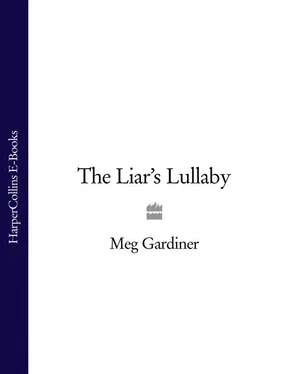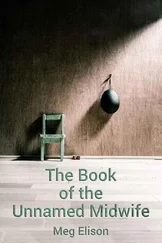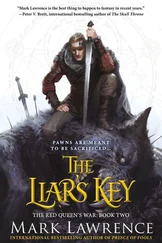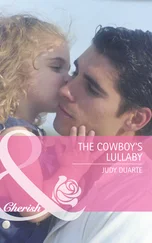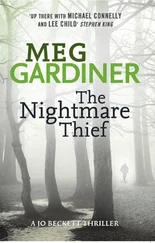I fell into your embrace
Felt tears streaming down my face
Fought the fight, ran the race
Faltered, finally fell from grace.
She tapped her fingers on the desk, wondering if the verse referred to Tasia’s marriage.
Few photos existed of Tasia and Robert McFarland together. But online she found an old, and vivid, magazine photo essay. Tasia had met McFarland while performing for the troops, and several photos showed her mingling with soldiers. McFarland was prominent among them. He looked young, handsome, and sure of himself. In one lighthearted shot, McFarland and a bullet-headed officer Jo recognized as K. T. Lewicki, now White House chief of staff, had hoisted Tasia onto their shoulders. In another, taken soon after the McFarlands’ marriage, they brimmed with energy—seemingly from being in each other’s presence. Tasia looked like a saucy cheerleader, ready to single-handedly rouse the army to victory. McFarland looked like he believed himself the luckiest man alive: confident, swimming in love, and unselfishly proud of his talented young wife. They were laughing as though the world had revealed its secrets, and was beautiful.
At nine, Amy Tang phoned. “Tasia’s autopsy is this morning. Medical and psychiatric records might be with you this afternoon, but full tox and blood work will take days. Her next of kin will meet with you at ten A.M.—her sister, Vienna Hicks.”
Jo wrote down Hicks’s phone number. “Did you know that police sources are talking to the press about me?”
“As I told you, this is a cheap thrill ride, not the Pirates of the Caribbean. But I’ll remind people to keep their mouths shut.”
Jo looked again at the photo of Tasia and Robert McFarland, young and in love. She didn’t know how Tasia had gotten from there to writing, But Robby T is not the One / All that’s needed is the gun . She wondered if Tasia’s sister could tell her.
SHORTLY BEFORE TEN, JO DROVE DOWNTOWN. THE STREETS OF THE Financial District were packed with cars and delivery trucks. The sidewalks bustled. The sun flashed from skyscraper windows, and wind funneled between the buildings. Jo pushed through a door into a coffeehouse where silverware clattered and the staff wore facial piercings and protest buttons pinned to berets. Vienna Hicks waved from a table against the windows.
Jo worked her way through the crowded room. Hicks stood and clasped her hand. “Dr. Beckett. I’m Vienna.”
Vienna Hicks stood six feet tall and weighed two hundred pounds. Her ash-blue suit was impeccable. Her red hair looked like a runaway fire.
“Thanks for meeting me,” Jo said.
“I was downtown on business. I’m a paralegal at Waymire and Fong. They’re handling Tasia’s estate, and they’ll tackle any lawsuits that get filed against it.”
She sat again, solidly. Her physique looked too grand for the tiny table. She had the forceful gaze of a grizzly bear. She eyed Jo up and down, and didn’t look dazzled.
“Psychiatrist. Guess I shouldn’t be surprised. They’re running on empty, aren’t they?” she said.
“The police?”
“They don’t know how to label Tasia’s death.”
“The police are searching for an explanation. I’m here to help them find it.”
Vienna tapped manicured nails on the table, patently skeptical. “This place is stifling. Let’s walk.”
She stood and headed for the door, parting the crowd around the counter like an ocean liner. Jo hustled after her. Outside, Vienna threw a crimson scarf around her neck and strode along the sidewalk toward the Embarcadero Center. The scarf whipped in the wind like a crusader’s banner.
“You want a label? The media gave Tasia enough of them to carpet the streets at a ticker-tape parade.” She put on a pair of oversize sunglasses. They barely contained the force of her gaze.
“Starlet. Mouseketeer. Pop tart,” she said. “Loser, reality show contestant, drug addict.”
She headed toward the waterfront. “A-list dropout. Fame whore. Presidential reject.” She glanced at Jo. “Manic-depressive.”
“Was that officially diagnosed?”
“By a board-certified psychiatrist. Rapid-cycling Type One bipolar disorder.”
Vienna’s cat’s-cream skin was nearly luminous in the sunlight. Her red hair flew about her head in the wind.
“You want to know if she killed herself? Fully possible. Her major depressive episodes were deeper than a bomb crater.”
“When did she begin showing signs of the disorder?” Jo said.
“Her teens. It became obvious in her early twenties. During her marriage.”
“Was it a factor in her divorce?”
Vienna’s jaw cranked down. “You’d have to ask him.”
Him being the man who got 67 million votes in the most recent election, whose face graced the cover of every news magazine on the rack, and whose voice echoed from the television every ten minutes, day and night. Piece of cake.
“You don’t speak to Robert McFarland, I take it,” Jo said.
“I don’t even speak of him. And I never speak out about him. Tasia did that enough when she was off her medication.”
Jo nodded. Ahead, she saw the clock tower at the ferry building, the bay, and Alcatraz.
“Besides,” Vienna said, “you don’t need to hear my opinion on Rob. There’s plenty to go around. Read the Vanity Fair profile, the one that described Tasia as a hopped-up, bebop Bunny wannabe with her gleaming eyes on the prize.”
Jo kept her mouth closed. If Vienna wanted to talk, she wanted to hear it.
“I presume you’ve got the whole IMDb-of-crazy database that lists Tasia’s greatest hits of conspiracy theory,” Vienna said.
“I’ve seen a few clips.”
“Fox News?”
“Talking about the Second Amendment. Assault rifles for all. Homeland Security putting tranquilizers in the water supply,” Jo said. “The YouTube rant against the Federal Reserve.”
Vienna’s mouth pursed. “The vitriol was clinical paranoia, and yeah, it was embarrassing as well as frightening. But in her defense, she was off her meds then. In recent years she got much better treatment and good med management. The political rants stopped.”
They paused at a corner. Palm trees stood sturdy against the breeze, fronds cutting the air. A tram rolled past, orange and yellow, one of the mid-twentieth-century electric trolleys recently resurrected by the city. When it stopped, Jo half-expected to see Humphrey Bogart climb off, fedora rakishly cocked.
“Being Tasia’s sister must have been difficult—”
“Eight years of medical training for that insight? You went to public schools, didn’t you?”
“—but you must have felt both angry and protective of her.”
Vienna’s Afrika-Corps-size sunglasses hid her eyes, but she radiated heat. The light changed. Vienna plowed across the street toward the waterfront.
“And helpless,” Jo said. “As if she was being taken from you by a host of banshees, and you were powerless to stop it.”
Vienna walked on for a few seconds. Then she turned to Jo and pulled off the shades. She let out a slow, barely controlled breath.
“People feasted on her like vultures. And she enabled it,” Vienna said. “She was so passionate about performing—so talented, so needy for an audience, so… panicked about the idea that all the attention might go away. She practically staked herself out on the ground and called them down to tear chunks from her flesh.”
“I’m sorry for your loss,” Jo said.
“Thank you. Tell me it was an accident. Please.”
“That’s why I’m talking to you.”
The wind blew Vienna’s scarf skyward. “I know.”
Читать дальше
